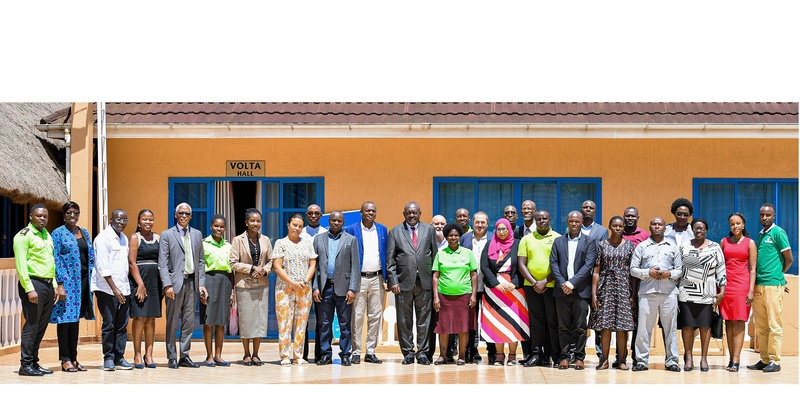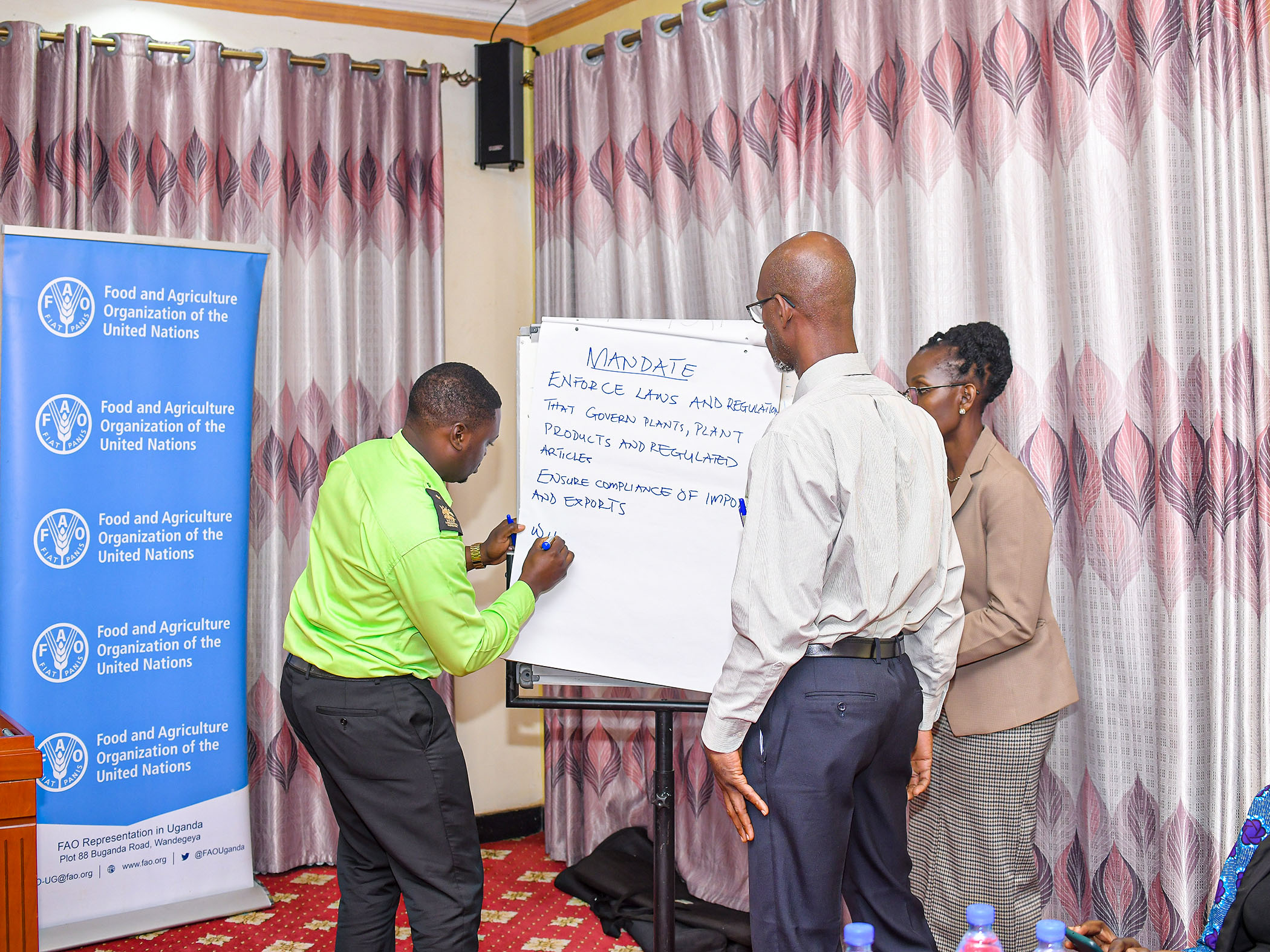Uganda to undertake a Phytosanitary Capacity Evaluation to boost agricultural trade
Posted on Mon, 13 May 2024, 07:01

Representatives from the Ministry of Agriculture, Animal Industry and Fisheries in Uganda, FAO and the IPPC Secretariat during the PCE workshop © FAO Uganda
Kampala, 6 May 2024 – The Government of Uganda has embarked on a six month-long process of conducting a Phytosanitary Capacity Evaluation (PCE) aimed at examining the country’s capacity to protect plants from the introduction and spread of pests and therefore enhance international market access for agricultural products. The PCE will be led by the Department of Crop Inspection and Certification in the Ministry of Agriculture, Animal Industry and Fisheries (MAAIF) of Uganda, with support from the Food and Agriculture Organization of the United Nations (FAO) and the International Plant Protection Convention (IPPC) Secretariat.
It will be conducted under the framework of the project “Strengthening Food Control and Phytosanitary Capacities and Governance”, financed by the European Union and co-implemented by FAO’s Agrifood Systems and Food Safety division. This project seeks to align Uganda's phytosanitary measures with the African Union's Sanitary and Phytosanitary (SPS) Policy Framework, promoting robust agricultural systems, social-economic development, and sustained trade in agricultural products.
The PCE in Uganda will focus on nine specialized modules, each addressing critical aspects of phytosanitary capacity enhancement, including export certification, national phytosanitary legislation and pest surveillance and pest reporting capacity. The process will involve key national stakeholders from MAAIF, research institutions and universities, customs, and the private sector. They will deliberate on improving technical capabilities, governance, and strategic planning for plant health in Uganda. Once completed, the PCE results are expected to guide the country in developing a national strategy to strengthen phytosanitary capacity to protect Uganda’s agriculture and market access.
“I congratulate Uganda for choosing to conduct the PCE and prioritizing capacity development for plant protection”, said Osama El-Lissy, IPPC Secretary, in a message read on his behalf by Fitzroy White – Phytosanitary Specialist at the IPPC Secretariat. He was speaking at a workshop to kickstart the PCE process, at Hotel Africana in Kampala.

“Global challenges like climate change are worsening the pest problem and threatening sustainable agriculture and trade. It is important that countries have relevant safeguards against plant pests; strengthening national capacity through the PCE is one avenue”, he added.
“The PCE will allow Uganda to further strengthen its ability to protect its borders from harmful pests while also facilitating smooth trade and promote economic growth through exports and domestic trade. And most importantly, the PCE findings will serve as a roadmap for Uganda's national plant protection organization (NPPO) to prioritize areas for development”, said Antonio Querido, FAO Country Representative in Uganda.
Paul Mwambu, the Commissioner for Crop Inspection and Certification in the Ministry of Agriculture, Animal Industry and Fisheries thanked FAO, the IPPC Secretariat, and the European Union Delegation in Uganda for enabling Uganda to participate in this project. He noted that the PCE results, “will be instrumental in guiding the country’s strategic direction on phytosanitary systems.”
The PCE in Uganda follows the successful validation of PCEs in nine Common Market for Eastern and Southern Africa (COMESA) countries throughout 2023. These PCEs marked a significant step for participating countries, most of whom developed national phytosanitary capacity strategies or are prioritizing plant health capacity initiatives. Two international PCE facilitators will guide the evaluation.
Related information:

